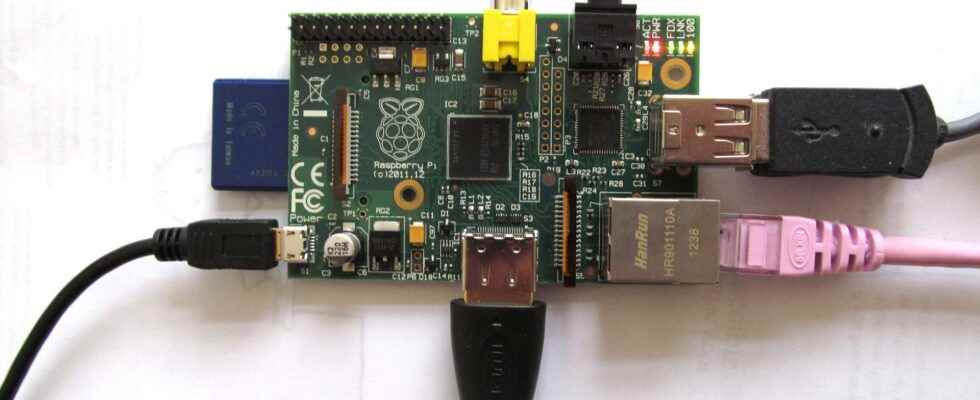A team of researchers designed a non-software virus detection system using a Raspberry Pi, an H-field probe, and an oscilloscope. This set makes it possible to detect the signatures of electromagnetic waves specific to certain types of viruses.
You will also be interested
[EN VIDÉO] The first computer bug in history Computer bugs are as old as the computer itself. The first bug in history would date back to… 1947. Since then, malfunctions affecting our devices are commonplace, and some have had disastrous consequences.
The Raspberry Pi has been, since its inception, both the Swiss Army Knife and the 4×4 IT through its rudimentary side, its optimized architecture, its robustness and its extreme flexibility. With it it is possible to manufacture many devices for all kinds ofapplications. Encapsulated in a small cube, it was used to test encryption methods in the ISS. It was also used for To hack a lab of the Nasa.
It is once again in the field of cybersecurity that the Raspberry Pi has just stood out. In France, the Irisa lab (Institute of Computer Science and Random Systems) at developed a virus detection system using the nanocomputer. It was combined with an H-field probe, i.e. a sensor of electromagnetic fields, and an oscilloscope. How is this strange assemblage able to detect the presence of computer viruses ? By focusing on the detection of signatures ofelectromagnetic waves several types of viruses, especially those that attack connected accessories, whose firmwares are not known for their invulnerability. This is what the team of scientists explained in December when presenting the results of their tests at the conference. ACM Machinery.
Waves to detect viruses
Scientists started from the observation that active software generates its own electromagnetic waves. It is, in a way, a unique signature. A virus being a computer program like any other, it also has a signature electromagnetic unique. A theory that has been confirmed by oscilloscope from several viruses already known and executed on various devices. The researchers collected these signatures and used them to program a Raspberry Pi. With its sensors, the device now serves as a virus detector. To check if a virus is active on a smartphone, a computer or even a connected accessory, simply place the H-field probe near the device so that it can collect the electromagnetic waves that it diffuses.
The Raspberry Pi then indicates whether it has found those specific to its virus database, and if so, which ones. Tests revealed that the system was able to detect 99.82% of malware so-called generic. In the end, no need for software anti-virus and this detector makes it possible to unmask the virus the most stealthy even if the authors have taken care to hide their presence so that they can squeeze through the meshes of the best security systems. While this invention sounds great, it shouldn’t really become a popular antivirus solution, however. Scientists believe at best that this detector could be useful for professional systems and servers.
Interested in what you just read?
.
fs1
